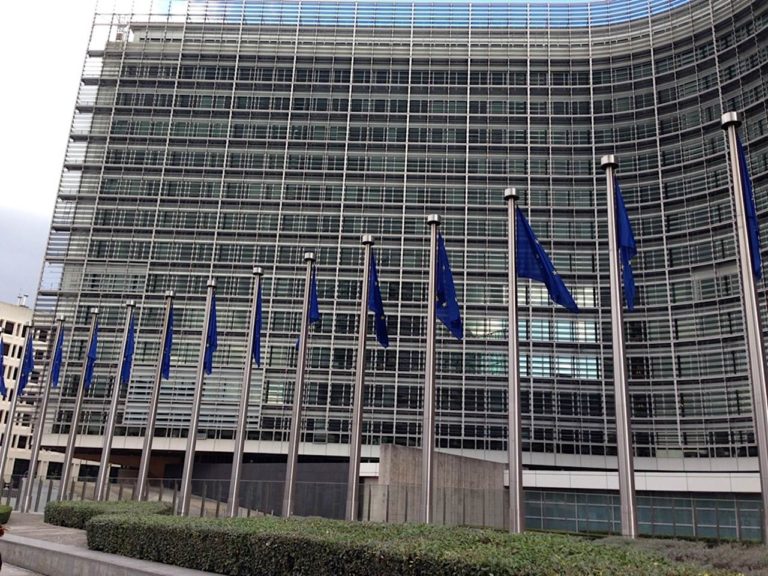Highlights from the Past Week
CW 24 / Monday, 12 to Thursday, 15 June: Plenary Sessions Week (Strasbourg);
E-EVIDENCE – PLENARY CONFIRMS TRILOGUE OUTCOME: Last week in Strasbourg, the European Parliament adopted the e-Evidence legislative package negotiated in the trilogue and finalised at the end of November. It introduces a coherent EU framework for handling electronic evidence and aims to speed up the process of evidence gathering.
Public authorities will be able to request evidence directly from service providers. There is still the possibility to refuse evidence requests if there are fundamental rights concerns.
MEPs adopted the two-part package with a clear majority (+433, -157, 34 abstentions). After the pending confirmation in the Council (likely to take place on 27 June) and publication in the Official Journal, the legislative package can enter into force. The transitional period is 36 months. (see EP press release)
ARTIFICIAL INTELLIGENCE – PARLIAMENT ADOPTS POSITION: Last week, the plenary of the European Parliament adopted its negotiating position on the Artificial Intelligence Act (AI Act). In the end, the vote was relatively unspectacular and the report of the two committees, LIBE and IMCO, was adopted along with the negotiated compromise amendments (+499, -28, 93 abstentions). The amendments tabled by the EPP did not receive a majority. This means that talks with the EU Member States on the final shape of the act can now begin.
The act aims to ensure that AI developed and used in the EU is fully in line with EU rights and values. This includes that AI applications include human oversight, meet safety requirements, privacy and transparency, and include non-discrimination and social and environmental wellbeing (see EP press release)
Trilogue negotiations started immediately after the endorsement.
INFRASTRUCTURE REPORT – EU PARLIAMENT ADOPTS REPORT ON COMPETITION POLICY: Last week, the EU Parliament adopted the annual report on competition policy during its plenary session. Under point 44, the non-legally binding report includes a paragraph on infrastructure costs, calling for the establishment of a “policy framework where large traffic generators contribute fairly to the adequate funding of telecom networks”. Based on an amendment by the Socialist Democrats (PDF), a reference to net neutrality was added. An amendment to delete paragraph 44 was rejected by 321 votes to 267. (see Euractiv)
In an interview last week, Commissioner Breton also called for a new Telecoms Act: “Today, I’m campaigning for a ‘Telecoms Act’, a new telecoms industrial policy for the next twenty years, just as we did in the semiconductor sector with the ‘Chips Act’ or with platform and data regulation,” he told Les Echos (paywall, FR). “Europe now has a truly unified digital market. Now it needs a single market for communication infrastructures,” he added.
CYBERSECURITY I – PUBLICATION OF 5G TOOLBOX PROGRESS REPORT: The EU Member States, with the support of the European Commission and the EU Agency for Cybersecurity, have published a second progress report on the implementation of the EU Toolbox on 5G Cybersecurity. The report also addresses some of the recommendations of the European Court of Auditors’ Special Report from January 2022. Complementary to the progress report, the Commission has adopted a Communication on the “implementation of the EU 5G cybersecurity Toolbox” by Member States and in the EU’s own corporate communications and funding activities.
With regard to strategic measures and in particular the introduction of restrictions on high-risk suppliers, the progress report notes that 24 Member States have already adopted legislation or are preparing legislative measures which give national authorities the power to carry out a risk assessment of suppliers and to apply restrictions. Of these, 10 Member States have already introduced such restrictions and three Member States are currently working on introducing the relevant national legislation. Given the great importance of connectivity infrastructures for the digital economy and the dependence of many critical services on 5G networks, Member States should implement the Toolbox without delay.
In its Communication, the Commission underlines its deep concern about the risks posed by certain suppliers of mobile network communication equipment providers to the security of the Union. The Commission considers that decisions adopted by Member States to restrict or exclude Huawei and ZTE from 5G networks are justified and compliant with the 5G Toolbox. In line with these decisions and on the basis of a wide range of available information, the Commission considers that Huawei and ZTE pose significantly higher risks than other 5G suppliers.
CYBERSECURITY II – PARLIAMENT APPROVES PEGASUS REPORT: For one year, MEPs investigated the use of Pegasus and similar surveillance and spyware. Their conclusion: the illicit use of spyware threatens democracy. They now call for tackling the abuse of such software with credible investigations, legislative changes and better enforcement of existing rules.
To put an immediate end to illicit spyware practices, MEPs argue that spyware should only be used in Member States where allegations of spyware abuse have been thoroughly investigated. In addition, national legislation must comply with the recommendations of the Venice Commission and case-law of the EU Court of Justice, and where export control rules have been enforced.
The resolution also makes targeted recommendations for Hungary, Poland, Greece, Cyprus and Spain. An EU Tech Lab could help with research, investigations and forensic analysis. (see EP press release)
DATA ACT – FURTHER ACTION: According to media reports, some substantial changes have been made in the latest four-column document dated from 13 June. Progress has accelerated on the file, with many of the previous yellow lines turning green (i.e. confirmed), such as on the scope of application and definitions, such as for data controller.
Disagreement still remains on the data sharing obligations, the place of establishment of data recipients, the definition of trade secret holders, and user and data owner access in case of security risks. Governance is also an area of debate, notably concerning the role of the coordinating authority as a single point of contact, the cooperation between the EDPB and the EDIB, and the timeline for entry into force. (see Euractiv)
SUSTAINABILITY – COUNCIL CONFIRMS RENEWABLE ENERGY DIRECTIVE: As announced by the Swedish Presidency of the Council on Twitter, the ambassadors of the Member States confirmed the provisional agreement on the revision of the Renewable Energy Directive during the COREPER meeting on 16 June.
If the European Parliament adopts the text of the provisional agreement as a first reading position on the proposal, it is anticipated that the Council will approve this position in the first reading order to formally adopt the revised directive.
DIGITAL SERVICES ACT – FIRST STAKEHOLDER EVENT: The EU Commission’s first stakeholder event on the Digital Services Act (DSA) will take place in Brussels on 27 June.
The event is to present a unique opportunity for stakeholders to provide input to the Commission ahead of the enforcement of the DSA and to network with platform representatives, as well as national and EU policymakers.
Participants are invited to take part in 14 technical workshops focusing on a wide range of topics covered by the DSA. All workshops will be web streamed. The morning sessions hone in on gender-based violence, online marketplaces, mental wellbeing, privacy and data science. The lunch workshops will focus on online hate and extremism, intellectual property rights, protection of minors and the implications of the DSA on the rest of the world, as well as data access for researchers. The afternoon workshops will cover freedom of expression and media pluralism, dark patterns and advertising, disinformation, and risk assessments and algorithms. (see COMM press release)
GERMANY – FEDERAL GOVERNMENT PRESENTS NATIONAL SECURITY STRATEGY: On Wednesday last week, after months of delay, the German federal government for the first time adopted its National Security Strategy for Germany in its cabinet. The controversial issue of “hackbacks” was rejected in principle.
The National Security Strategy is the first such plan adopted by Germany in its post-war history. Based on the spirit of “integrated security”, the federal republic’s internal and external security threats are to be bundled into an overall concept. The topic of cybersecurity also plays a prominent role in the document.
“The central task of the state is to ensure the security of its citizens. It is not just about defence and the armed forces, but also about cyber defence and resilience,” Chancellor Olaf Scholz stated during a press conference on Wednesday. (see Euractiv)
Relevant Publications, including from the EP Think Tank:
- Draft Report on the proposal for a regulation Laying down rules to prevent and combat child sexual abuse – Amendments 277-544, 545-953, 954-1332, 1333-1718, 1719-1909 – LIBE, J. Zarzaleojos
- Combating child sexual abuse online (Briefing)
- Artificial intelligence [What Think Tanks are thinking] (Briefing)
- Plenary round-up – June 2023 (A a Glance)
- Analysis exploring risks and opportunities linked to the use of collaborative industrial robots in Europe (Study)
- Gigabit infrastructure act (Briefing)
- Cultural diversity and the conditions for authors in the European music streaming market: a bibliographical review (Briefing)
A Selection of the EU Commission’s Consultations
- Draft BEREC Report on practices and challenges of the phasing out of 2G and 3G – Feedback on the report: 13 June to 15 August 2023
- Extension of the date of applicability of the RED delegated act on cybersecurity, privacy and protection from fraud – Feedback on the delegated regulation: 24 May to 21 June 2023
- Cyber Solidarity Act – Feedback on the regulation: 20 April 2023 to 20 July 2023 (extended)
- Net Zero Industry Act – Feedback on the regulation: 20 March to 27 June 2023
- European Critical Raw Materials Act – Feedback on the regulation: 20 March 2023 to 30 June 2023
Outlook for the Current Week
You can find a list of the upcoming dates of the European Parliament here. The meeting calendar for 2023 is available here (PDF), while the calendar for 2024 is accessible here.
An overview of the most important dates of the Council week can be found here and the meeting calendar can be accessed here.
The official calendar as well as the programme of the Swedish Presidency can be found on the associated website.
Included among the Council dates are:
Summits and Ministerial Meetings:
- Transport, Telecommunications and Energy Council (Energy), Monday, 19 June – Agenda, A Items, Legislative Deliberations, A Items, Non-legislative Activities, Background Brief;
- Environment Council, Tuesday, 20 June – Agenda, A Items, Background Brief;
- Informal Meeting of the General Affairs Council, Wednesday, 21 and Thursday, 22 June – Programme;
Preparatory Bodies:
- Working Party on Cooperation in Criminal Matters (COPEN), Monday, 19 and Tuesday, 20 June (Agenda);
- Working Party on Telecommunications and Information Society (incl. GIA, Data Act, AI, eIDAS), Monday, 19 June (Agenda) and Thursday, 22 June (Agenda)
- Working Party on Competitiveness and Growth (Industry), Monday, 19 and Tuesday, 20 June (Agenda), as well as Thursday, 22 June;
- Horizontal Working Party on Hybrid Threats, Tuesday, 20 June;
- Horizontal Working Party on Cyber Issues, Wednesday, 21 June and Friday, 23. June;
- COREPER I ( Data Act), Wednesday, 21 and Friday, 23 June (Agenda);
- COREPER II, Wednesday, 21 and Friday, 23 June (Agenda);
Information about the weekly Commission meeting can be found on the website of the Commission in the preview (PDF) or (at short notice) in the current agenda. The non-legislative proposal on the metaverse has been postponed to 11 July. Meanwhile, the directive on tackling child abuse, the draft of which had been scheduled for 6 September, has now once again been removed from the preview.
The following topics are on the agenda for the coming week:
- Review/revision of the functioning of the Multiannual Financial Framework
- An adjusted package for the next generation of own resources
- European economic security strategy
The judicial calendar of the ECJ can be found here.
European Parliament Committees
CW 25 / Monday, 19 to Thursday, 22 June: Green Week (no meetings);
LIBE Committee (Civil Liberties)
Current Meetings
- None
Further Meetings (Calendar)
- Wednesday, 28 June 2023, 9.00-12.30 and 14.30-18.00 (Brussels)
- Thursday, 29 June 2023, 9.00-12.30 (Brussels)
JURI Committee (Legal Affairs)
Current Meetings
- None
Further Meetings (Calendar)
- Monday, 26 and Tuesday, 27 June (Brussels)
- Monday, 3 July (Brussels)
Dossiers Timetable (15 May 2023)
ITRE Committee (Industry)
Current Meetings
- None
Further Meetings (Calendar)
- Wednesday, 28 June, 9.00-12.30 and 14.30-18.30 (Brussels)
- Thursday, 29 June, 9.00-12.30 (Brussels)
Dossiers Timetable (PDF) (14 June 2023)
IMCO Committee (Internal Market)
Current Meetings
- None
Further Meetings (Calendar)
- Wednesday, 28 June, 9.00-12.30 and 14.30-18.30 (Brussels)
- Thursday, 29 June, 9.00-12.30 (Brussels)
Dossiers Timetable (May 2023)
CULT Committee (Culture)
Current Meetings
- None
Further Meetings (Calendar)
- Wednesday, 28 June, 9.00-12.30 and 14.30-18.30 (Brussels)
- Thursday, 29 June, 9.00-12.30 (Brussels)
INGE2 Committee (Special Committee on Foreign Interference)
Current Meetings
- None
Further Meetings (Calendar)
- Thursday, 6 July, 9.00-12.30 (Brussels)
Further Parliamentary Calendar Dates
- CW 26 / Monday, 26 to Thursday, 29 June: Committee Meetings Week (Brussels);
- CW 27 / Monday, 3 to Thursday, 6 July: Political Group and Committee Meetings Week (Brussels);
- CW 28 / Monday, 10 to Thursday, 13 July: Plenary Sessions Week (Strasbourg);




